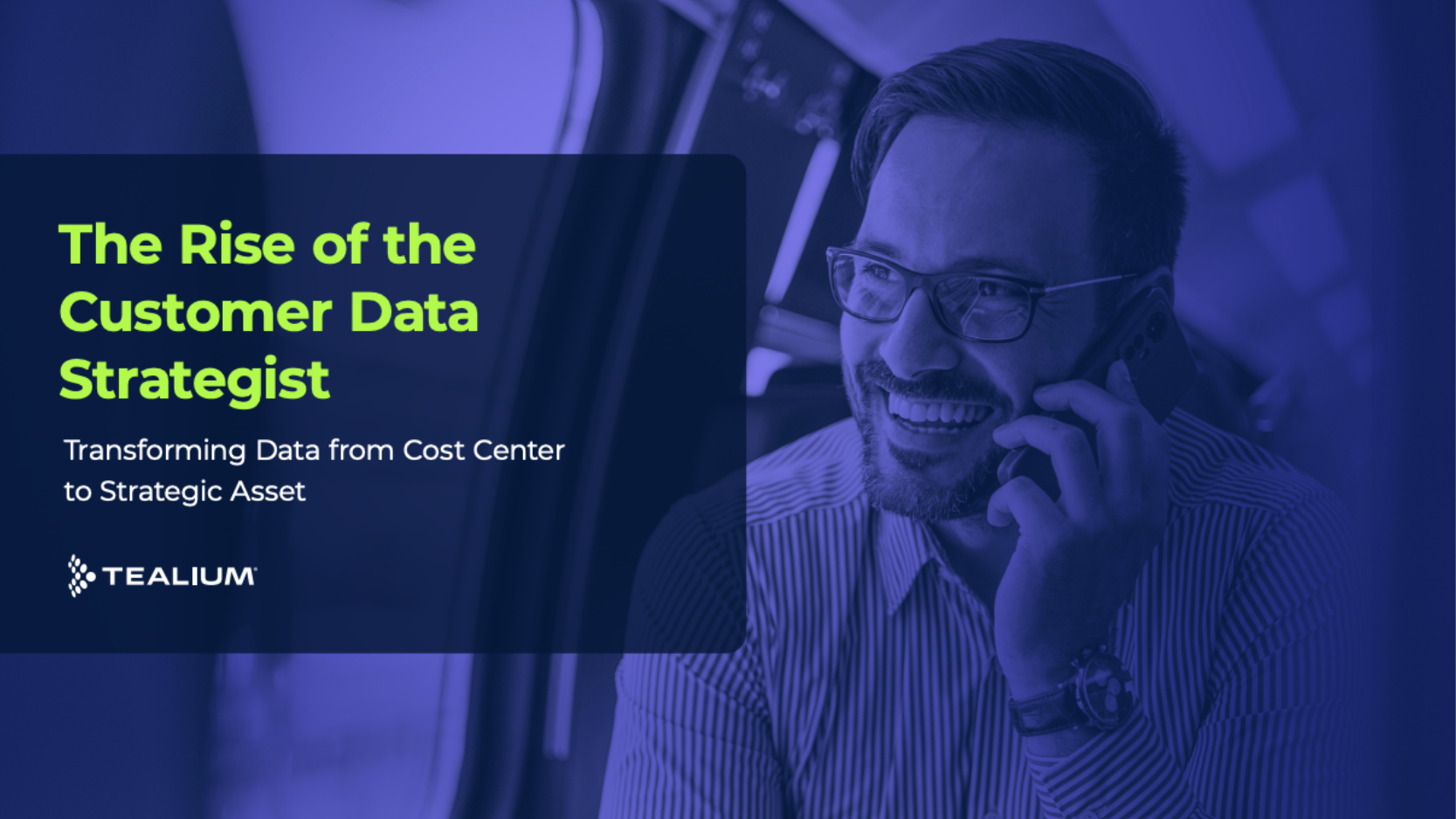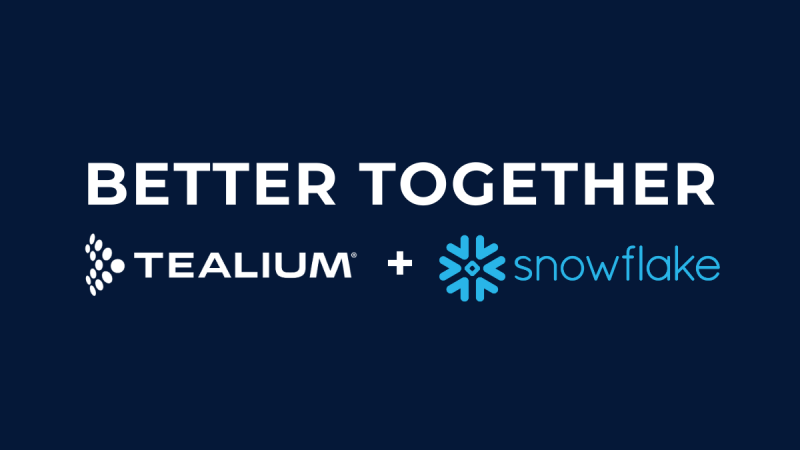Standardizing bidirectional data exchange between AI models and Tealium’s Customer Data Platform through a Model Context Protocol (MCP) implementation.

With the rise of AI frameworks, AI design patterns, and the multitude of possible applications, the market demands a more elegant way to enable context for AI models more easily and efficiently. That’s where Model Context Protocol (MCP) comes into play, and Tealium wanted to share with you how it’s possible to integrate MCP with Tealium at the heart of it all. Tealium created an MCP-enabled demo app that demonstrates using AudienceStream’s Moments API as an MCP Tool for real-time retrieval, along with a disparate data source that simulates a product promotion retrieval API. This combination provides a recipe that enables personalized product offers to online shoppers through a fictitious online sporting goods retailer via their conversational AI shopping experience.
MCP fundamentally reimagines how enterprise data flows between customer touchpoints and AI systems. Traditional CDP implementations may struggle with the real-time demands of conversational AI and emerging channels. This standardized protocol solves some challenges by creating a universal language for AI and customer data systems to communicate bidirectionally, regardless of vendor or implementation details. It’s the TCP/IP for enterprise customer data – a foundational protocol that enables system interoperability. Tealium’s real-time data capability is the other critical component for making a conversational AI experience possible, where AI can reason with vital customer data facts necessary to drive more business value through personalization.
The MCP protocol provides several key advantages over traditional approaches for retrieval:
- Standardized Integration: Unified way to connect AI models with external data sources and tools, eliminating custom integrations and reducing development complexity.
- Real-time Data Access: Models can access live data from databases, APIs, and file systems, providing much richer context than training data alone.
- Security & Control: Proper authentication and authorization mechanisms let organizations control what data and capabilities models can access.
- Tool Extensibility: Models can interact with diverse tools and services, from code repositories to business applications, expanding capabilities beyond text generation.
- Ecosystem Interoperability: A Common protocol enables different AI systems, tools, and data sources to work together seamlessly, creating a more connected AI ecosystem.
These benefits make MCP especially valuable for enterprise AI deployments requiring integration with existing systems while maintaining governance and security.
Strategic Significance for Omnichannel Data Orchestration
MCP integration represents a natural addition to Tealium’s strategic position as an omnichannel data orchestration platform. Using MCP for AI-CDP interaction, Tealium acts as a central nervous system for customer-facing AI implementations across the enterprise technology stack.
Unified Data Exchange Protocol for the AI Ecosystem
The MCP Demo App demonstrates how Tealium serves as a universal data connector between:
- Conversational AI Platforms
- Customer Service Systems
- Marketing Automation Platforms
- Commerce Platforms
- Mobile Applications
- IoT Devices
This interoperability uses Tealium as an enterprise-wide AI context provider, enabling consistent personalization across all touchpoints through a uniform data exchange protocol.
Technical Architecture
Here’s a little bit about the MCP Demo App:
Retail Chatbot
A modern retail chatbot application built with TypeScript, React, and OpenAI’s GPT. This application provides personalized shopping experiences by integrating with Tealium Moments API for visitor data for first-page personalization and with MCP Tools that get passed into the model that represent a Tealium Moments API Engine and a mock product promotional deals service.
Features
- Personalized shopping experience based on visitor data
- Real-time visitor data integration with Tealium Moments API
- Product recommendations and deals
- VIP customer handling with exclusive offers
- Real-time chat interface with streaming responses
- Modern, responsive UI built with React and Tailwind CSS
Architecture
The application is built using a microservices architecture with three main components:
- Client Application (React)
- Built with React and TypeScript
- Modern UI using Tailwind CSS
- Real-time chat interface with streaming responses
- Handles visitor interactions and displays personalized content
- Server Application (Node.js)
- Built with Express.js and TypeScript
- JSON-RPC 2.0 protocol for communication
- MCP implementation with LLM tool integration
- OpenAI GPT integration for natural language processing
- MCP Servers and Client
- Products Server: Manages product and deal data
- Moments API Server: Integrates with Tealium Moments API for visitor data
- Central MCP Client: Coordinates between servers and chat processing
File Structure
Learn more about the application and drill into the files by reviewing the source code repository located here: https://github.com/bjallmontealium/mcp-chatbot-app
src/ # Source code root
├── client/ # React client application
│ ├── App.tsx # Main application component
│ └── App.css # Application styles
├── server/ # Server application
│ ├── index.ts # Server entry point
│ ├── llm.ts # OpenAI LLM and tool integration
│ └── mcp/ # MCP implementation
│ ├── core.ts # MCP core implementation
│ ├── products.ts # Product Deals server
│ └── moments.ts # Moments API server
Cross-Channel Strategic Benefits
MCP strategically influences how enterprises connect their data infrastructure with the rapidly evolving AI ecosystem. As organizations deploy AI across customer touchpoints – from chatbots to voice assistants, mobile apps to IoT devices – they face critical data consistency and context sharing challenges. Our implementation creates a unified data fabric so AI interactions, regardless of channel, access the same comprehensive customer context, eliminating the siloed AI experiences that frustrate customers and undermine brand trust.
MCP delivers transformative capabilities for connecting Tealium’s CDP across the entire enterprise technology landscape:
1. Enterprise AI Governance & Consistency
- Unified Customer Knowledge Graph: Ensures every AI interaction draws from the same consistent data foundation
- Cross-Channel Identity Resolution: Maintains customer identity continuity across disparate touchpoints
- Centralized AI Interaction Analytics: Provides comprehensive visibility into AI interactions across all channels
- Governance & Compliance Controls: Enforces consistent data usage policies across all AI implementations
2. Omnichannel Experience Orchestration
- Seamless Context Transfer: Allows conversations to move across channels while maintaining context
- Progressive Customer Understanding: Continuously enriches customer profiles with insights from each AI interaction
- Consistent Personalization Rules: Enforces uniform personalization strategies across all customer touchpoints
- Channel-Specific Optimization: Enables tailored experiences optimized for each channel’s unique capabilities
3. Integration Capabilities
The application provides several integration methods for developers:
- SDK Integration (Using the many available MCP spec implementations available for a variety of languages)
- Universal Channel Support (Web, Mobile, In-Store, Agents)
- Enterprise System Connectors (CRM, Marketing, Commerce)
Adaptable AI Data Composability
MCP with Tealium fits within the evolving enterprise AI landscape and easily allows for the adaptation of more integrations or the swapping out of different vendor or service implementations as needed, driving composability for AI vendor neutrality, future-proofing against channel proliferation, data enrichment and activation acceleration, competitive differentiation, and partner ecosystem enhancements or additions.
MCP integration addresses a significant challenge enterprise customers face: making customer data accessible, actionable, and consistent across the rapidly proliferating world of AI-powered channels. By adopting MCP, we’re creating a future where customer data flows seamlessly to wherever the customer engages. Look out for future Tealium MCP innovations!
As customer journeys become increasingly digital and self-directed, the ability to deliver personalized experiences at scale has never been more critical. The combination of Tealium with the MCP Demo App provides organizations with a robust foundation for:
- Real-time personalization across all customer touchpoints
- AI-enhanced experiences powered by comprehensive customer data
- Consistent engagement throughout complex journeys
- Data-driven insights to continuously improve customer experiences
By standardizing how customer data is collected, unified, and activated, MCP is helping organizations transform their customer experiences and drive measurable business results.
About Tealium
Tealium connects customer data across web, mobile, offline, and IoT so businesses can better connect with their customers. Tealium’s turnkey integration ecosystem supports over 1,300 built-in connections, empowering brands to create a complete, real-time customer data infrastructure. The company’s solutions include a customer data platform with machine learning, tag management, an API hub, and data management solutions that make customer data more valuable, actionable, privacy-compliant, and secure. More than 850 leading businesses worldwide trust Tealium to power customer data strategies.




